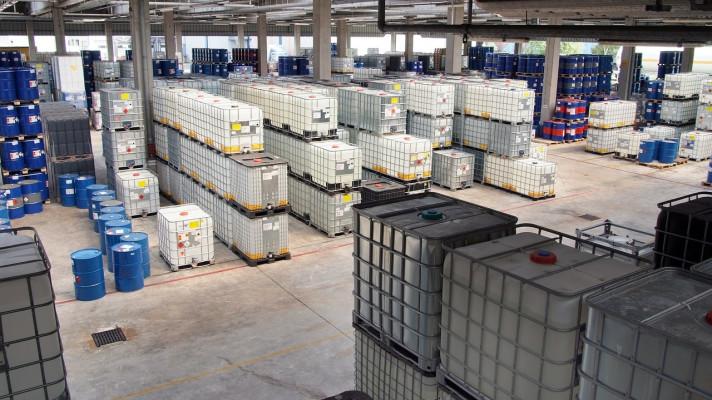Estimating agriculture's phosphorus footprint
Researchers have calculated how much phosphorus is taken from the land by major crops around the world and how much is applied as fertiliser, to help estimate agriculture´s phosphorus footprint. Among their conclusions, they argue that phosphorus fertiliser needs to be used more sustainably to address global imbalances in its use.
Phosphorus is an essential nutrient in soils for healthy crop growth and high yields. Plants take up phosphorus from the soil and when crops are harvested, the phosphorus is removed from the land in the crops. Unless phosphorus is replaced using fertilisers, crop yields will fall. However, high quality phosphorus reserves are diminishing and the cost of fertilisers is rising, with few options available for efficient use.
This study estimated the total amount of phosphorus removed from agricultural land around the world by four major dry cereal crops (barley, maize, rice, wheat) and the largest dry seed legume crop (soybeans) across the world for the period 1995-2003.
When plants take up phosphorus from the soil, some of it is stored as inorganic phosphorus but most of it is converted into phytic acid, particularly in seeds. Phytic acid is of particular health and environmental concern because when it is consumed by humans and some other animals, such as pigs and chickens, it is not properly absorbed by the body. Instead it passes through the body, taking other key nutrients with it (such as iron, zinc and calcium), and contributes to nutritional deficiencies in around one-third of the world's population, as well as phosphorus pollution in water. The researchers therefore produced separate global calculations for how much phosphorus and how much phytic acid was contained in the crops.
On average, 2.3 billion tonnes of the crops were produced each year, which removed nearly 7 million tonnes of phosphorus from the land. About 44 per cent of this was removed in Asia. Over 21.7 million tonnes of phytic acid was stored and removed annually in the crops.
Around 14 million tonnes of phosphate fertiliser was applied each year to these crops around the world. Nearly 54 per cent of fertiliser was used by Asian farmers, proportionally more than any other region, compared with only 3 per cent in Africa, where soil is often naturally low in phosphorus.
To improve the sustainability of agriculture and increase food security, the researchers suggest that phosphate fertilisers could be used more efficiently in Asia and that more fertilisers could be applied in Africa to improve yields. However, as phosphorus is a limited resource, fertiliser prices are rising and the researchers predict that food prices could rise further.
Special low-phytic varieties of the crops would also improve human nutrition and reduce phosphorus levels released to the environment by humans and animals and help prevent eutrophication. The researchers calculated that if the crops analysed in this study had been low-phytic varieties, the global amount of phytic acid stored in these crops would be less than half, i.e. nearly 10 million tonnes. Low-phytic varieties have been bred through selective breeding and genetic modification for all the crops discussed in this study, which reduce the amount of phytic acid stored in crops from 90 per cent of phosphorus content to approximately 30 per cent.
Source: Lott, J.N.A., Bojarski, M., Kolasa, J. et al. (2009). A review of the phosphorus content of dry cereal and legume crops of the world. International Journal of Agricultural Resources, Governance and Ecology. 8 (5/6):351-370.
Contact: lott@mcmaster.ca
